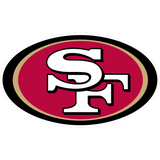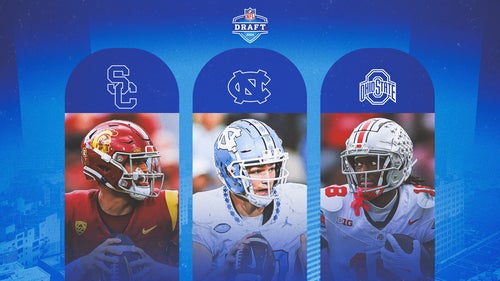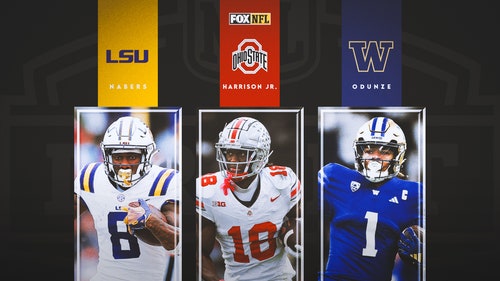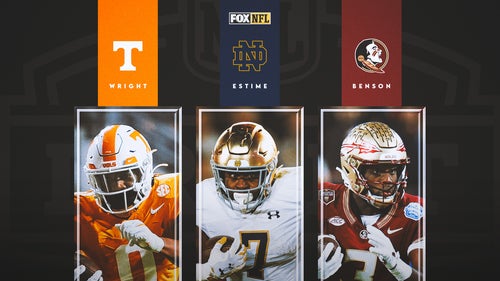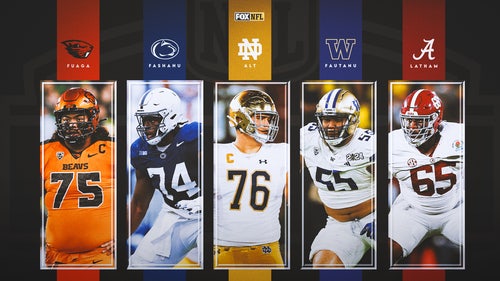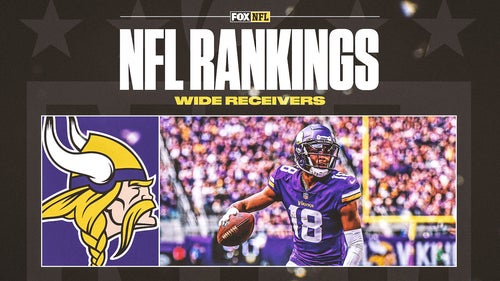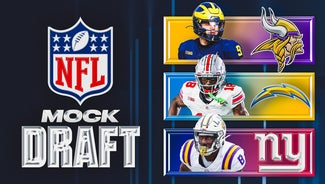
Why is Colin Kaepernick still looking for a job?
You run into all sorts of people in New York City, and these days you might see a muscular, freakishly athletic, highly motivated 225-pound vegan who has divided the country. Colin Kaepernick is back to his old playing weight after being noticeably slimmer in 2016, when three surgeries kept him from his usual training regimen. The question now is whether Kaepernick’s adversaries will get their pound of flesh.
After three weeks as a free agent, Kaepernick remains unemployed. This is not a typical case of unemployment, where friends give sympathetic hugs and contribute to a GoFundMe campaign. Kaepernick has made millions and he may yet make millions more. He will be fine. Still, he is only 29, he has been an NFL starter in each of the past five seasons, and nobody has signed him.
There are many theories as to why. Teams are punishing him for kneeling during the national anthem. They fear he will do it again. They don’t think he can play anymore. Football isn’t a priority for him. He isn’t worth the distractions he creates. Each theory makes some sense . . . until you talk to the men who actually coached him.

He can’t play anymore …
“He’s big, athletic, he can hurt you both throwing and running,” says Chip Kelly, Kaepernick’s coach with the 49ers last season. “The last couple of years, he was banged up. I think he is going to be better next year than he was this past year because physically he will be better.”
Last year, Kaepernick finished 17th in the NFL in passer rating and 23rd in ESPN’s Total Quarterback Rating. That’s certainly not Pro Bowl-quality. But it wasn’t bad for a player recovering from surgeries on his right thumb, his left knee and a torn shoulder labrum, a player who was leading an offense full of castoffs and afterthoughts.
Football is not a priority …
“Every day his car would be the first one in the parking lot,” says Jim Harbaugh, who almost won Super Bowl 47 with Kaepernick in San Francisco before moving on to the University of Michigan. “He’d be studying film and he’d be working out in the morning. I mean, no later than 5:45. He was already in a full lather when I would see him.”
He’s a distraction to his teammates …
“There was zero distraction,” Kelly says. “He met with the team immediately after [his first protest]. He met with the other team leaders. He explained his position and where he was coming from. And literally, that was it. Colin was focused on football. He was all about the team and trying to help us win.”
There are 32 NFL teams, which means there are 64 quarterback jobs. Harbaugh believes Kaepernick still can be a starter, if not an elite player. Kelly says, “Do I think he is one of the top 64 quarterbacks in the world? There is no question. Does he have the ability to play quarterback on a winning team in the NFL? There is no question.”
So why is Kaepernick looking for a job?
We could blame NFL teams for being obtuse. We could blame Kaepernick for being obstinate. We could argue that the NFL cares only about public relations or that Kaepernick is un-American. But saying Kaepernick is unemployed simply because of his politics or bad publicity is like saying Adrian Peterson is unemployed simply because he was accused of child abuse. It may be a factor, but it’s not the only one.
If we view Kaepernick’s free agency as a straightforward referendum on his protests, then we make the same mistakes people usually make when it comes to Kaepernick. We simplify a complicated issue, and we get mad instead of trying to understand.
* * *

But America wants to talk about the messenger. We always do. And so Kaepernick’s critics throw various darts his way: He hates his country. He hates the police. He hates the military. He resents being adopted by a white family. He is trying to draw attention to himself because he isn’t a star anymore. He is a naïve pawn in a political game that he doesn’t understand.
None of it is true. Kaepernick is bright, thoughtful, quiet, and fiercely independent; you could sooner talk a tree into making you a sandwich than talk Kaepernick into doing something he doesn’t want to do. When college scouts said his future was in baseball, he declared he would be an NFL star. When his mother asked him to skip a high school baseball game because he had pneumonia, he pitched a no-hitter. When a writer criticized his tattoos, he responded by kissing his tattooed biceps after touchdowns.
Kaepernick may not have fully anticipated the firestorm he caused last fall, but once he caused it, he wasn’t going to back down. Stubbornness may be his hallmark trait. It helps explain why he went from a lightly regarded recruit to an NFL star. Harbaugh says of his time coaching Kaepernick: “It got to the point where nobody could challenge him in a workout. Otherwise, he’d bring them to their knees. Like in running workouts — nobody could hang with him. Nobody was in the kind of shape he was.”
You might argue that was the old Kaepernick, before his head turned toward the Black Lives Matter movement. But there is no evidence that Kaepernick’s interest in social justice sapped his interest in football. Kelly says Kaepernick did not miss a day of the 49ers’ voluntary workouts last summer. Remember: Kaepernick was recovering from three surgeries and was not happy with the organization. But he was unrelenting, and he remained that way all fall.
And this brings us to two seemingly contradictory statements about Kaepernick:
1. He is absolutely, completely, 100% committed to playing in the NFL this year.
2. If NFL teams demand he put aside his social justice work, he will walk away from the game.
Those statements are tough to reconcile. But I believe both to be true. He wants to be some team’s hardest worker, but he won’t change who he is. This is why the concept of “risk” is actually limited with Kaepernick. His performance might be a risk. Fan backlash could be a risk, especially in certain markets. But his character is decidedly not a risk. The notion of Kaepernick loafing while cashing checks is laughable to anybody who knows him.

“When Colin is with us, he is 100 percent football,” Kelly says. “There’s not, ‘Hey, Coach, I don’t have time for this.’ That was never him. [The protest] never affected how he worked or what our workplace was like. And that’s a credit to Colin.”
Generally, pundits and fans only see what players show us. Kaepernick’s protests were public, so they became fodder for national debate. Players see much more. They know who shows up to late to meetings hung over and who likes to hit strip clubs three times a week. This is why Kaepernick’s protests did not affect his standing in the locker room: Teammates saw how hard he worked.
But we cannot discount what the public sees. NFL teams are businesses, owned by prideful billionaires. Owners want to win, but they also do not like to be embarrassed. Some would be embarrassed to have their famous guests look down from the owner’s box and see the starting quarterback kneeling during the national anthem.
In early March, about a week before NFL free agency opened, ESPN reported that Kaepernick will stand for the anthem this fall. That report led many to logically conclude that Kaepernick dropped his protest because he wants a team to sign him. Well, maybe. First of all, Kaepernick has not said publicly that he will stand for the anthem. Second: If he does stand, he may just have decided he is tired of people misinterpreting the intent behind his kneeling. Remember, the first time he protested, he sat on the 49ers’ bench. When he was told that seemed contemptuous, he started kneeling.
* * *

The Star-Spangled Banner (and the star-spangled banner) evokes visceral reactions. And when a fellow American declines to stand for it, that evokes other visceral reactions. Harbaugh may be Kaepernick’s biggest advocate in football, but he bristled when the anthem protest began.
“I was like anybody: I didn’t really like this,” Harbaugh says. “I wish he had chosen a different way to do this, a different action.”
When a reporter asked Harbaugh about Kaepernick’s protest, Harbaugh said, “I don’t respect the motivation or the action.” He quickly regretted his choice of words, and he clarified that he respected the motivation, not the action. But he still didn’t approve. Harbaugh is a stand-for-the-anthem kind of man.
But then Harbaugh did what too many have not done: He thought hard about it. He had no choice. Some of his Michigan players supported Kaepernick and raised their fists during the anthem.
“It wasn’t a distraction because we were listening to what they were saying,” Harbaugh says. “And they had a valid point. And they continue to have a valid point.”
For a moment, try doing what Harbaugh did last fall: Listen.
“The issue is, the more money you have, the more access you have to justice,” Harbaugh says. “The less money you have, the less access you have to justice.”
Harbaugh has seen this himself, through his work on the Legal Services Association, which funds civil legal services for poor Americans.
“Somebody is trying to make a foreclosure on you, an unlawful foreclosure,” Harbaugh says. “You don’t know where to go. You don’t have legal representation. Do you even know how to access the form to make a grievance? … [or] if you are a woman who is being battered and abused: In some courts, you have to pay $500 to get a divorce. Maybe you don’t have $500. How do you get a restraining order against somebody who is doing you bodily harm, without representation? It’s hard to know where to start to do that. If you don’t know how to do it or you’re not successful or you don’t have the means, then the person finds out, it can be life-threatening. That’s what civil legal representation can provide. Somebody who has money has access.”
Not surprisingly, Harbaugh has ideas of how to address the problem. Among them: Harbaugh thinks the government should employ paralegals to work in post offices, to help low-income Americans navigate the legal system. But the point is not that there are easy solutions. It’s that, if you step away from simplistic online screaming matches (“Cops are abusive racists!” “No, they’re not!”) you see a complex, systemic problem.
And this is what Kaepernick is trying to address. You can reasonably disagree with his actions: the anthem protest, the socks that depicted police as pigs, his choice not to vote in the presidential election. But there is common ground if we look for it. He is not against cops; as he has written on Instagram, he is against “rogue cops.” He did not give money to Meals on Wheels as a “political stunt,” as Sarah Palin recently suggested; he donates to numerous charities, and really: Are we criticizing somebody for donating to Meals on Wheels? He is not against America; he is for a better America.
Listen to Harbaugh talk about the unrest in Ferguson, Mo., after Michael Brown was killed: “Now that they’ve had a chance to reflect on Ferguson, one of the real culprits were the fines and fees they were putting on low-income Americans, [that] 48 states have been implementing on all of us, all Americans. For Colin, and what Colin’s doing and has been doing, when you really stop and listen and know where Colin is coming from … he’s trying to do this for his future kids, for my kids, for all of our kids. He’s a special person and a hero, in my opinion.”

* * *
